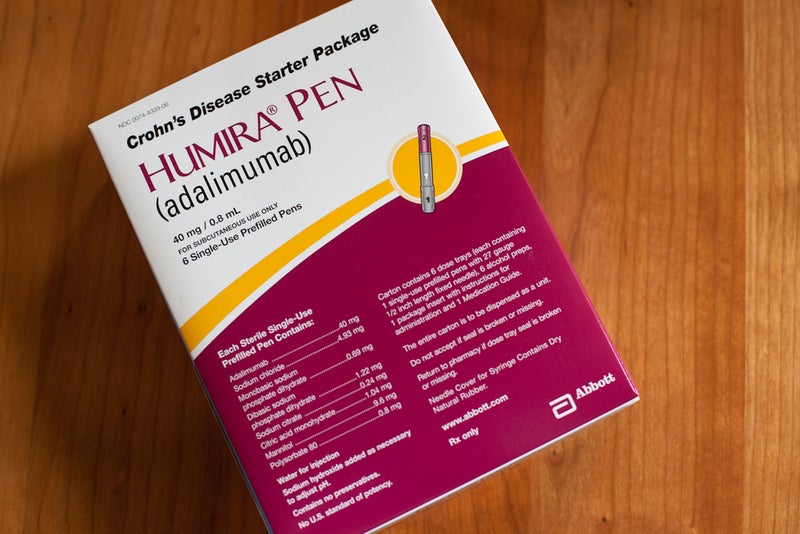
Biopharmaceutical company Alvotech has commenced patient enrolment in a Phase III clinical trial evaluating AVT02, a Humira biosimilar candidate, in adults with moderate to severe chronic plaque psoriasis.
The AVT02 formulation contains a 100mg/ml concentration of adalimumab, which the company expects to be more convenient for patients.

Discover B2B Marketing That Performs
Combine business intelligence and editorial excellence to reach engaged professionals across 36 leading media platforms.
AbbVie’s Humira, which is also a formulation of adalimumab, is a tumour necrosis alpha (TNF-α) inhibitor. It is indicated for several autoimmune diseases such as plaque psoriasis, rheumatoid arthritis, ankylosing spondylitis, and psoriatic arthritis.
Humira generated sales of approximately $20bn last year.
The multi-centre, double-blind, randomised trial will assess the safety, efficacy, and immunogenicity of AVT02, compared to Humira.
Dubbed ALVOPAD PS, the parallel-group, active-control trial will enrol a total of 400 patients at around 30 European sites.

US Tariffs are shifting - will you react or anticipate?
Don’t let policy changes catch you off guard. Stay proactive with real-time data and expert analysis.
By GlobalDataAlvotech senior vice-president Fausto Berti said: “The initiation of this Phase III study reinforces our commitment to improving the lives of patients suffering from serious chronic or life-threatening diseases by providing high-quality biosimilars.
“Specifically, with AVT02 containing biosimilar adalimumab at high concentration (100mg/ml), we hope to reach future patients with a more convenient, cost-effective version of adalimumab.”
Primary outcome measure of the ALVOPAD PS trial is the percent change in Psoriasis Area and Severity Index (PASI) at week 16 from baseline.
The study will also monitor the percent change in PASI from baseline to week eight, 12, 24, 32, 42 and 50. It is expected to be completed by August next year.
Alvotech founder Robert Wessman said: “By developing a high-quality and cost-effective biosimilar, we seek to give as many patients as possible the opportunity to access this treatment option and we provide an opportunity for healthcare providers around the world to improve patient care and significantly reduce costs.”





